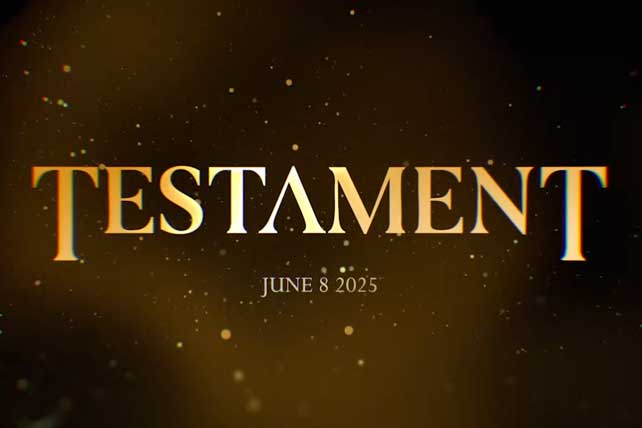Angel Studios is set to release a new series titled “Testament.” It tells the accounts found in the Book of Acts—but set in a modern fictional world.
According to the series synopsis, “Testament” starts after the ascension of Jesus: “A resurrection sparks a movement that turns the world upside down, spreading hope amid chaos.”
As the followers of Jesus “risk everything to preach the good news, the Temple races to silence them before the oppressive Imperium regime retaliates.” Through the display of “public miracles, unburied secrets, and fractured loyalties,” both sides are forced to “confront the true cost of their choices.”
“Testament” creator and director Paul Syrstad, who is also set to direct a film based on the lives of C.S. Lewis and J.R.R. Tolkien, spoke with ChurchLeaders about what he hopes audiences will take away from “Testament.”
RELATED: Jonathan Roumie To Star Alongside Kevin James, Alyson Hannigan in Angel Studios’ ‘Solo Mio’
“We’ve made this show really with two audiences in mind,” Syrstad said, “and we do so on purpose.” The first audience, he explained, is those who are already following Jesus, love the Bible, and love the story of Acts.
Syrstad shared how he purposely changed up the order of the names of Shadrach, Meshach, and Abednego during a sermon he recently preached at his church. “I decided to play a little trick on them. And I did the story of Abednego, Meshach and Shadrach,” he said.
“Now, if you’re a follower of Jesus and you’re familiar with the story, you might have realized that I’ve said those names in a different order,” Syrstad continued. “And it’s an order that you’ve never heard before, because it always gets done the same way.” When he said those names in that order, Syrstad said that he “genuinely saw the whole congregation sit up and go, what is he talking about?”
Syrstad said, “I changed nothing. I just changed the order of the names of how they were said. But it suddenly re-engaged them with the same story.”
Oftentimes, when we already know a story, we don’t engage like we should “because we think we know it and we don’t,” Syrstad added. “That’s the beautiful thing about the Bible: Every time you read it, you are transformed by the Word as you’re reading it.”

